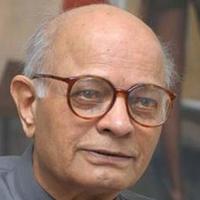 The passing of Brajesh Mishra has evoked memories of his role in organising the Pokhran II nuclear tests.
The passing of Brajesh Mishra has evoked memories of his role in organising the Pokhran II nuclear tests.
But what we sometimes forget is how extraordinarily powerful he was when he served as Prime Minister A.B. Vajpayee’s principal secretary and the country’s first National Security Advisor (NSA).
His grip over the government was so absolute that it was bitterly resented by many in the BJP who complained that the wrong old bald guy had become India’s second most powerful man: not L.K. Advani but Brajesh Mishra.
A popular joke from that era captures the aura of power that surrounded Mishra. When it emerged that the terrorists who attacked Parliament in 2001 had intended to take the Cabinet hostage, people wondered what would have happened.
“Oh, nothing at all,” went the punch-line. “Brajesh Mishra would have continued running the government as he already does.”
Though he began as a diplomat, politics was in Brajesh Mishra’s blood. His father, D.P. Mishra, a powerful chief minister of Madhya Pradesh, was one of Indira Gandhi’s chief strategists during the 1969 Congress split and was nicknamed Chanakya.
When Brajesh retired from the IFS, he longed to follow his father into politics. But by then, the senior Mishra had parted bitterly from Mrs Gandhi so Brajesh joined the BJP, where he toiled away to no great distinction. This changed in 1998 when he was discovered by A.B. Vajpayee, who admired the Chanakya-like cunning that Brajesh had inherited from his father.
| "Not since P.N. Haksar in the early days of Mrs Gandhi’s reign had a civil servant made the entire government of India – including Cabinet ministers – defer to his brilliance and his authority." |
When Vajpayee became Prime Minister, he put Mishra in charge of his PMO and asked him to organise the nuclear tests, a decision so sensitive that it was kept secret from most of the Cabinet. As national security advisor, Brajesh also revived and strengthened India’s intelligence agencies and created a parallel power centre to the foreign office, effectively destabilising every foreign minister.
His power derived from his closeness to Vajpayee. He was at the Prime Minister’s residence most mornings and every single evening, becoming a charter member of the family. Such was his understanding of the famously uncommunicative PM that Vajpayee had only to gesture for Mishra to understand what needed to be done.
Vajpayee trusted Mishra implicitly and admired his ability to concentrate all power in the PMO, a difficult feat to accomplish in a coalition and especially when L.K. Advani functioned as an alternative source of influence.
But Mishra was happy to take on Advani, did not mind being loathed by him, and often functioned as the PM’s hatchet man, distancing Vajpayee from unpopular decisions, a manoeuvre that allowed the PM to feign bewildered ignorance when Advani came complaining.
The obituaries have focused on Mishra’s considerable foreign policy achievements. But his greatest achievement was the manner in which he exercised power. Not since P.N. Haksar in the early days of Mrs Gandhi’s reign had a civil servant made the entire government of India – including Cabinet ministers – defer to his brilliance and his authority.
When Manmohan Singh took over as PM, he asked Mishra to stay on as principal secretary. Brajesh declined, saying, “My loyalty is to my boss (Vajpayee)!” But he repaid Singh’s kindness a few years later by coming out strongly in favour of the nuclear deal and making his final break with L.K. Advani and the BJP.
Name:
Please enter name
E-mail:
Your email id will not be published.
Please enter email
Please enter a valid email address eg. xyz@abc.com !
Friend's Name:
Please enter friend name
Friend's E-mail:
Your email id will not be published.
Please enter friend email
Please enter a valid email address eg. xyz@abc.com !
Additional Text:
Security code:
 Other Articles
Other Articles
-
It is not only the right thing to do on an intuitive level but also entirely in accordance with the principles on which this nation was founded.
-
My point is that in a country as large as ours, a numbers game makes no sense unless you look at the larger picture.
-
It is tempting to see the revolt as a failure because Pawar got nothing of consequence in Delhi. But it would be a mistake to do so.
-
This was an unnecessary reshuffle, forced on the nation by Manmohan Singh’s unwillingness to hold on to the finance portfolio.
-
And the end has an emotional power that is unusual for comic book pictures. What a pity it is the last movie in this trilogy!
See All